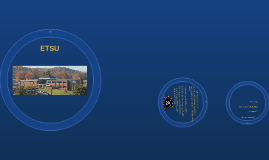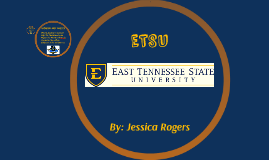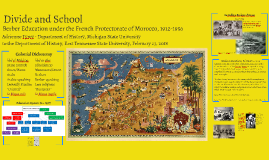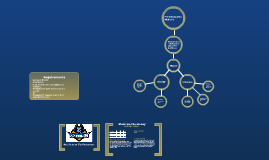Presentation - ETSU
Transcript: Colonial Dichotomy Like their comrades in the other scholarly establishments of the Cities, the students of the Collège d’Azrou, in a special meeting, have unanimously decided to go on strike, to contribute to the struggle of the Moroccan people to obtain their political, economic, and social rights. We love France, because it is the country which has taught us to know and to appreciate the traditions of 1789 that are our own; but we also love Morocco, because it is the country of our birth and which we would be proud to see featured in the rank of free powers, which owe to it a part in this freedom. Long live Free France, long live Free Morocco Long live His Majesty the Sultan, may God protect and glorify him Berber Education under the French Protectorate of Morocco, 1912-1956 "I know no task more exciting than initiating into our culture a youth avid to penetrate this new and prestigious universe, than to help him cross in a few years a step that demanded several centuries of our old peoples of Europe." -Roux, 1946 "...the goal of the schools is to tame the indigène, and to maintain - discreetly, but as firmly as possible - the linguistic, religious, and social differences that exist between the Arabized bled Makhzen and the Berber mountains, religious but pagan and ignorant of Arabic... In the Berber schools, the Qur'an is not taught, nor is the Arabic language. In religious terms, the rule is the strictest possible neutrality; in linguistic terms, teachers are required to speak only Berber or French; Arabic is rigorously prohibited. We will teach the students to write their language in Latin characters. Perhaps we will thus train Berber secretary-interpreters who will eliminate the Arab fqihs." -Maréchal Lyautey, internal memo, June 25 1924 bled al-Makhzen (state control) Cities/Plains Arabs Arabic-speaking Devoutly Muslim "Oriental" Le Maroc utile bled as-siba (dissidence) Mountains/Desert Berbers Berber-speaking Less religious "European" Le Maroc inutile RURAL SCHOOLS IN BERBER COUNTRY "Berber schools do not differ significantly from [rural Arab schools] by their organization. But from the political perspective, they play a much more important role. Their mission is to tame and bring closer to us without delay the children of those warlike peoples who most valiantly fought us. It was in 1923 that the first five Berber schools were created. Since then, their number has risen to eighteen. ...Everything suggests that it will grow rapidly, due to the good will of this population, especially the notables, to educate their children. We did not think it necessary to wait until primary education was widespread among the Berbers to create for them, in 1927, a regional school, a veritable collège, in Azrou." Students and teachers at the Collège Berbère d'Azrou, late 1930s. Director Paul Bisson is in the front row. Azrou sous la neige (ca. 1970) 1927-1956 Arsène Roux 1893: Born in Rochegude 1911: Soldier in Algeria 1913: Reassigned to Morocco as an interpreter 1914-1918: assigned to El Hajeb 1921: diplomas in Arabic and Berber from Institut des Hautes Études Marocaines (Rabat) 1920s: teaches Berber lang at military academy in Meknes 1927-1935: founder and director of Collège Berbère d'Azrou 1935-1944: Director of Collège Moulay Youssef in Rabat 1945: Interim director of Muslim Education 1945-1956: Berber language professor at Institut des Hautes Etudes Marocaines, chief inspector of Arabic language instruction in collèges/lycées 1956: Moves to Bayonne w/family, correspondence courses for Arabic and Berber 1971: Dies July 19, in Pau Student Manifesto, February 5, 1944 Education System (ca. 1937) Divide and School Adrienne Tyrey - Department of History, Michigan State University to the Department of History, East Tennessee State University, February 23, 2018 Le Collège Berbère d'Azrou The Berber Question June 1941

















